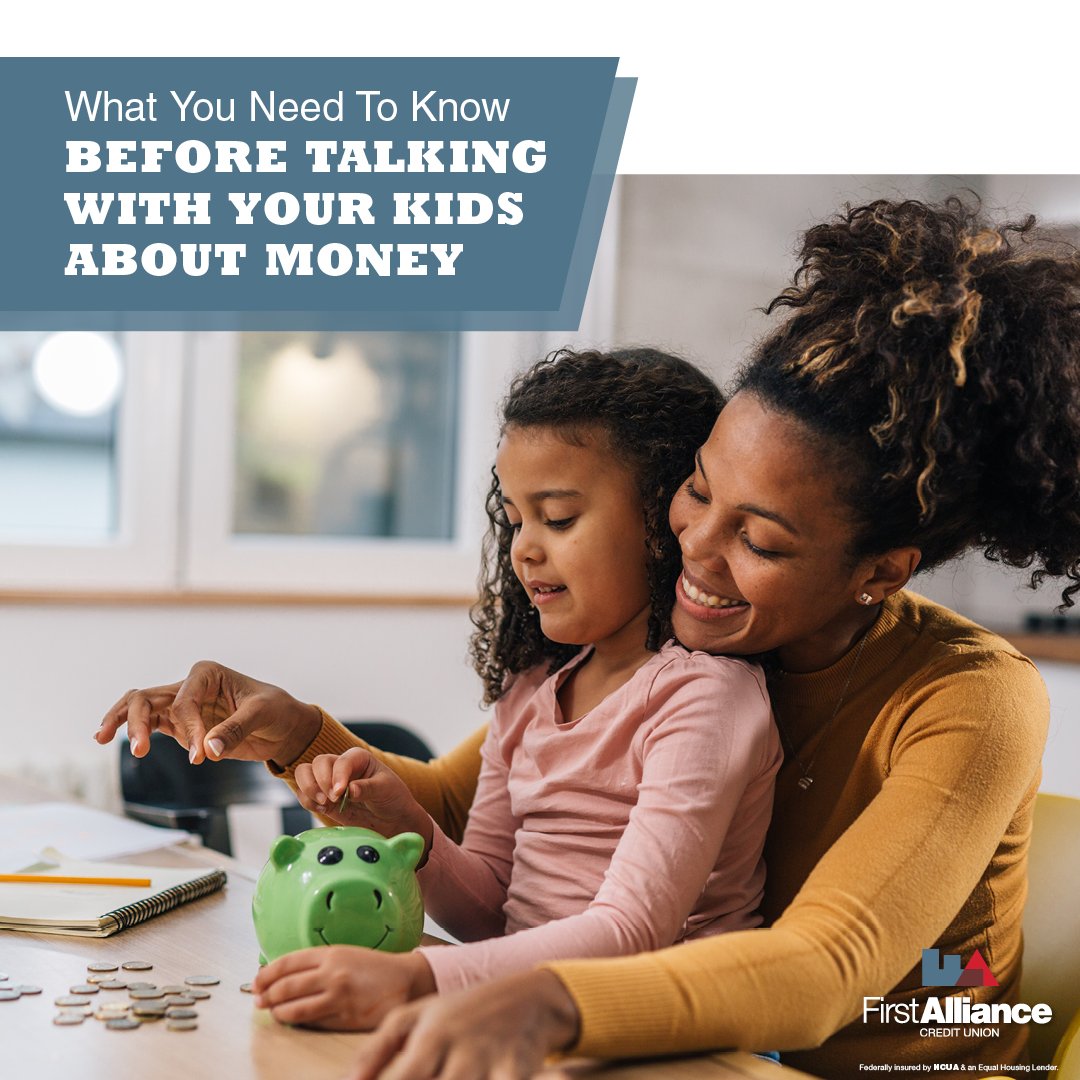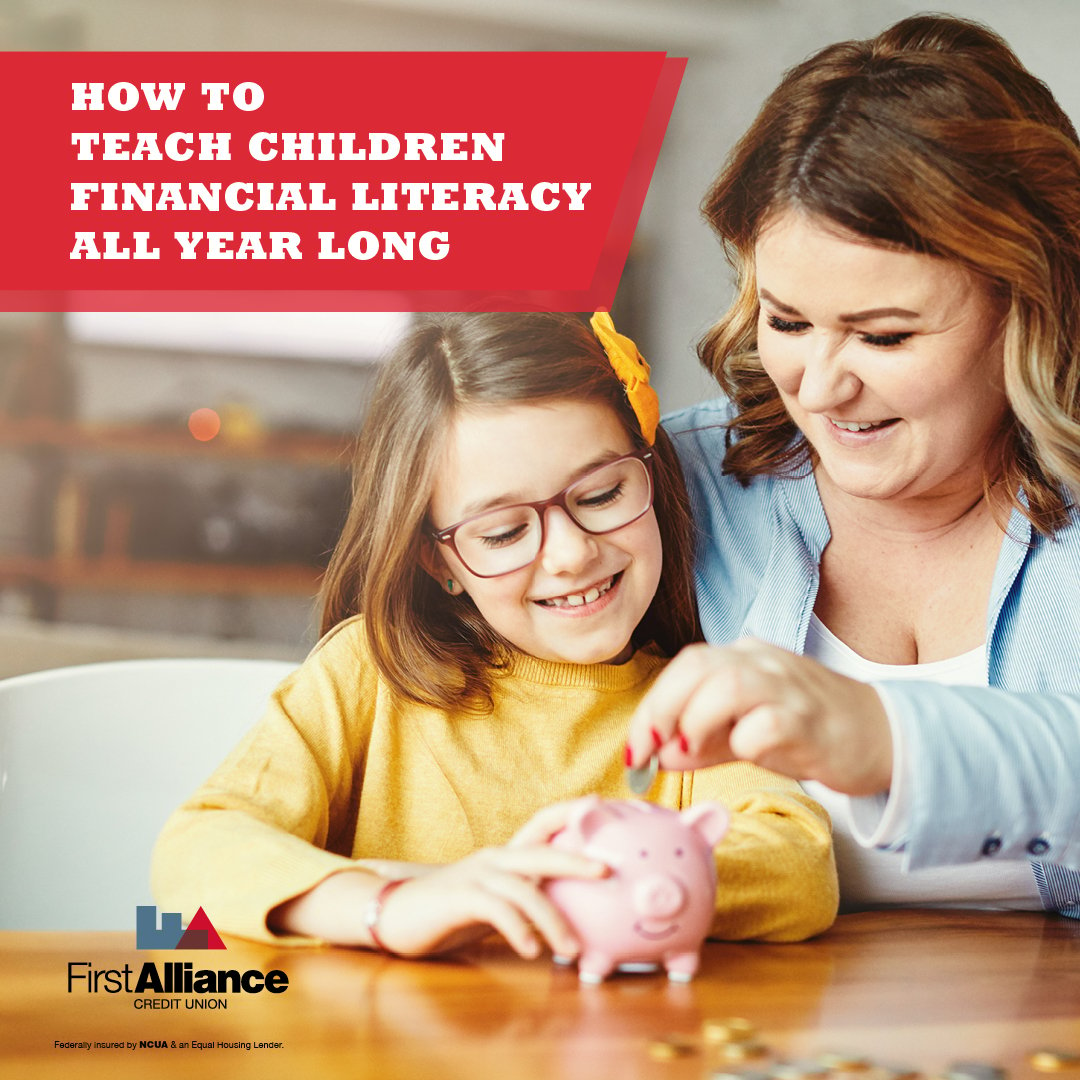How to Teach Children Financial Literacy all Year Long
April is Youth Financial Literacy month, and as part of this several credit unions, including First Alliance, are putting on programs to help...
3 min read
 Chris Gottschalk
:
Mar 14, 2023 4:45:00 AM
Chris Gottschalk
:
Mar 14, 2023 4:45:00 AM

Talking to kids about money can be a daunting task for many parents, but it’s an essential part of teaching your children financial literacy. When you talk with your kids about money, you’re letting them know that it’s okay to ask questions about money. You’re also opening them up to the benefits of learning about financial literacy and setting them up for financial success.
Even better, talking with your kids about money doesn’t have to be hard. You can use the tips below to not just make it informative, but even fun and engaging. Here’s How to Talk to Kids About Money:

The first step to teaching kids about money is to determine when to start the conversation. Experts recommend starting as early as three years old, when kids begin to understand the concept of money.
Perhaps even more importantly, you’ll need to make sure you’re using age-appropriate language and concepts. For younger children, simple explanations of what money is and how it's used are sufficient. Older children can learn more advanced concepts like budgeting, saving, and borrowing.
Once you've started teaching children the basics of money, you can move on to money management. This includes basics like budgeting, saving, and understanding debt and credit. Encouraging children to save a portion of their allowance or birthday money is a great way to teach them the value of money and the importance of delayed gratification. You can also involve your children in family budgeting activities to teach them about managing money and expenses.
Real-life examples are a great way to teach financial responsibility to kids. For example, taking your children grocery shopping and discussing the cost of different items can help them understand the value of money. You can also engage children with fun activities and games, like creating a savings jar or playing a money-themed board game. Encouraging children to set financial goals, like saving for a toy or a special outing, is another effective way to teach them about money management.
Setting a good example as a parent or caregiver is one of the most effective ways to encourage good money habits in children. Children are more likely to follow your example, so modeling responsible spending and saving is key. For instance, you can show your children how part of your paycheck always goes into a savings account, either as part of your emergency fund or towards a financial goal.
You can also encourage your child to give back to the community. You can show your child how to make charitable donations to a worthy cause or volunteer with an organization.
As with any topic, there may be challenges or concerns when discussing money with children. It's important to address financial challenges with children and teach them how to handle financial mistakes and missteps. It's also important to address any fears or concerns children may have about money, like feeling overwhelmed or anxious about managing finances.
Finally, it's important to teach children about long-term financial goals, like planning for college or retirement. Introducing children to investment and retirement planning can help them understand the importance of making smart financial decisions for their future.
Teaching your children financial literacy will help them become financially responsible adults. The first step, though, is being able to talk to your kids about money. Start slowly, with age-appropriate concepts, and from there you can move into areas like money management and financial goals, using real-life examples.
If you want help teaching children about financial literacy, become a member of First Alliance Credit Union today and take advantage of services we offer. You can help your child open a youth savings account, show them how to keep track of the money in it on the First Alliance online banking platform and mobile app, and even use our free downloadable SMART goal packet to help them save for a financial goal.

April is Youth Financial Literacy month, and as part of this several credit unions, including First Alliance, are putting on programs to help...

If you have children, the odds are you’ve had to figure out how to handle distance learning, thanks to the COVID-19 pandemic. This isn’t an easy time...
-3.png)
While children’s favorite holiday is probably Christmas, Halloween runs a close second. After all, what other day do you get to dress up and get free...